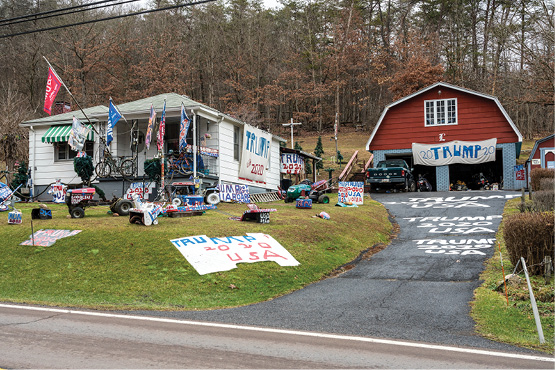I was driving through southern Georgia on Tuesday afternoon, when I first heard of the murders in the Atlanta/Cherokee County massage parlors, and noted that the suspect, a young man named Robert Aaron Long, was apprehended while trying to get to Florida, some 150 miles down I-75, probably not far from where I was at that exact moment.
Now that we have more info, it appears likely that Mr. Long is yet another name to add to the country’s long list of young white male mass murderers.
I wasn’t on I-75, however. Some of you here may remember William Least Heat-Moon’s book, Blue Highways, and I oftentimes feel like I’m following in his excellent footsteps. When traveling by car, I mostly meander, often taking a day or two to travel distances that might take five or six hours on the interstates. That’s how I found myself on the back roads of south Georgia on last Tuesday’s tragic afternoon.
To call that part of the world a vacant place, sadly, is an insult to vacant places. The word that came to my mind while twisting and turning on these bleak roads of a series of rural counties was “forlorn.”
More than a few now-aging Trump signs still stand along these back roads; some of the more elaborate ones look like bizarrely abandoned Christmas creches. And all along the highways, there’s almost no sign of sentient life, around houses both occupied and abandoned. Until you get to the county seats, where at least actual human beings were occasionally visible. Today, everything in these small towns is refocused, not around the town square and the court house, but around the Walmart, and around the local interstate exits (in this case, the ones along I-75), where cookie-cutter Days Inns and Comfort Inns and Wendy’s and Applebee’s pass for an odd kind of cultural tourism in this, our country. Wherever you go now, it seems, there you are — and there you have been before.
I’m sure there are wonderful people in these rural Georgia towns, but I dare say living in these places would drive many of us stark-raving mad, maybe even leading us to grow Amish beards and shoot up the women (and men) working in massage parlors in whatever Sin City is just 50 miles away. …
I have a suggestion for President Biden: Why not consider creating an agency within the Department of Agriculture; give it a nice name, of course, but one charged with bringing rural America back to life. For now, let’s just call it the Office to Combat Rural Disintegration (OCRD). I know, the name’s a non-starter, but it’s a fair description of what’s happening in the country’s non-urban spaces these days.
Such attention might help us as a nation break the cult of ignorance that overlays virtually everything in rural America. Of course, He Who Must Not Be Named — the ultimate city slicker, ironically — had the twisted genius to infect every corner of the hinterland, all the “there” that’s really not there between our urban centers, with his know-nothing xenophobia and anger against the “other.” Never forget that Joe Biden carried just 16 percent of America’s 3,006 counties last November. That’s not a good omen, for either Republicans or Democrats.
But it’s not all You Know Who’s fault either; he’s just one part of a rural trinity of forces, along with clerical (and racial) claustrophobia and, perhaps most important of all, the existence today of a digital universe where every man and woman can create their own version of reality. And wake up and change it 100 percent the next day. QAnon is the grand creation of rural America — and of its growing cult of ignorance.
Kenneth Neill is the former (and founding) publisher of the Memphis Flyer.
